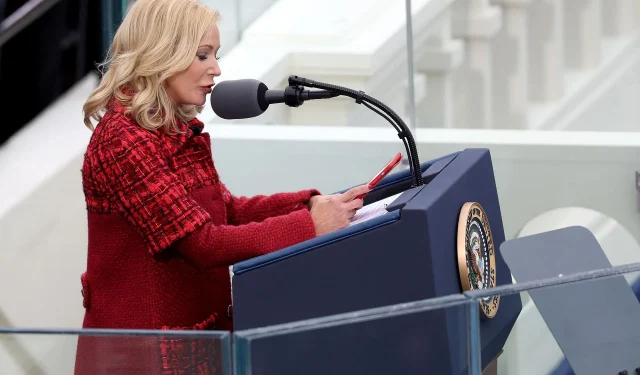Controversy Surrounds Paula White-Cain’s Recent Passover Sermon
Paula White-Cain, a Senior Advisor to the White House Faith Office, has become a focal point of online discussion following her Passover sermon broadcasted on March 23, 2025. The message raised significant concerns after she urged Christians to contribute financially to Paula White Ministries during this religious observance.
Donation Appeals and Criticisms
In a video that has since gone viral, White-Cain encouraged her audience to “honor God with your Passover/Easter Resurrection Offering.”In return for their generosity, she promised a “Holy Land Communion Set,”which includes two olive wood cups, grape juice, unleavened bread from Israel, and a guide on celebrating the Lord’s Supper. This set comes packaged in what she described as an “attractive, commemorative box.”
Moreover, donors would receive additional items, including a copy of her Passover devotional, a DVD series, and a special disc focused on communion practices.
“For your special Passover offering of $1,000 or more as the Holy Spirit leads, you will also receive the beautiful 10-inch Waterford crystal cross. Don’t miss your moment to release seven supernatural blessings and provision into your life,”she proclaimed.
Social Media Backlash
Following her appeal for donations, White-Cain faced substantial criticism across social media platforms. One notable comment from a user on X read:
“There is no floor too low for the grift…”
Further reactions poured in, highlighting skepticism and condemnation:
“What a fraud,” said one user.
“The really sick thing about this scam is that it preys on the poor,” another user remarked.
Divine Promises and the Call to Action
During her sermon, White-Cain urged Christians to “honor God on Passover,”which is marked from sundown on April 12 through Good Friday on April 18, culminating on Easter Sunday. She asserted that by donating, followers could receive “seven supernatural blessings”for themselves and their households, referencing principles from Exodus 23.
These blessings included assurances such as divine protection, prosperity, health, longevity, and a year of exceptional blessings.
“You’re not doing this to get something, but you’re doing it in honor to God, realizing what you can receive… Ministry takes money. And if you have the ability to stand with us, I want to ask you to put your faith during this very holy time – because I give just to give, and I pray there are others, but also know we wanna get you some special gifts,”she explained.
Responses from Christian Leaders
The message has drawn sharp criticism from varying leaders within the Christian community. Arizona pastor Gabriel Hughes voiced his concerns on X, stating:
“Dear Donald Trump, please remove Paula White. She’s a false teacher. Appoint a godly man who preaches Christ and Him crucified for our sins. Brethren have nothing to do with this woman.”
Other religious figures joined in, with Minneapolis pastor Jason Gudim cautioning:
“If you give Paula White a grand, the only thing you’ll ever be is poorer in every conceivable way imaginable.”
Further criticisms came from evangelist Justin Peters, who remarked on his stance regarding White-Cain and her relationship with Donald Trump. He emphasized that he would never engage in spiritual practices with someone he considers a false teacher.
Even celebrity figures like Stella Parton publicly denounced White-Cain’s actions, imploring her to cease her solicitation practices with strong words of disapproval:
“I’m a Christian and this is not at all Christian. It’s a grifter scam. STOP,” she urged.
Historical Context and Broader Implications
This most recent incident is not the first instance of Paula White-Cain facing backlash for similar donation requests. In March 2020, she controversially claimed that contributions would guarantee “supernatural protection from the Coronavirus.” Her history of intertwining financial solicitations with religious promises highlights a contentious relationship between faith and fundraising in contemporary religious practices.
Most recently, Jennifer Korn, leader of the White House Faith Office, stated that they engage with faith leaders nationwide to discuss various policy goals, ensuring that the voices of religious individuals are represented in governance. Korn emphasized their commitment to religious liberty and support for key social issues.
“We listen to their ideas and concerns to improve policy and ensure people of faith have a voice in their government, just like every other American,”she added.
As this situation unfolds, it generates important conversations around the ethical implications of religious leaders making financial requests tied to spiritual blessings, particularly during significant religious observances.
The scrutiny White-Cain faces exemplifies how intertwining spirituality with financial gain can lead to divisions within the community and broader societal conversations about the authenticity of faith-based fundraising practices.


